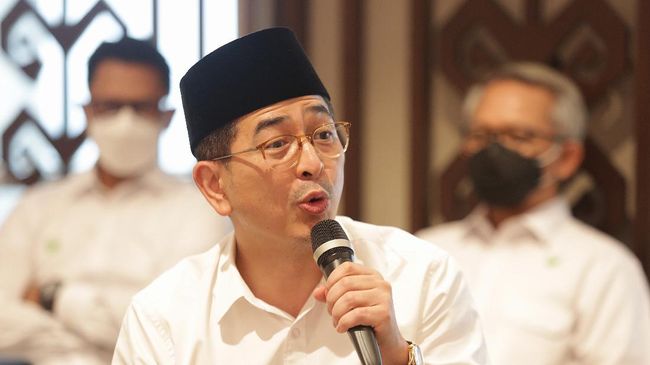Chairman of the Chamber of Commerce and Industry (Woman) Indonesia Arsjad Rasjid lays out four challenges business for entrepreneurs this year. First, the threat of the third wave of the pandemic covid-19. According to him, Indonesia is still vulnerable to the threat of the third wave of Covid.
This is in line with the increasing mobility of the community that occurred along with the easing of the PPKM.
“Accelerating the vaccination program and improving health protocols simultaneously are the keys to boosting economic recovery,” said Arsjad at the Indonesia Economic Outlook 2022 event, Tuesday (25/1).
Second, the world’s logistics problems. According to Arsjad, the increase in sea logistics transportation costs is predicted to continue for the next two years.
He said the trade disruption is due to the ongoing epidemic and is the cause of high logistics transport fares. Third, the state of world politics. Arsjad said that currently there are two potential political conflicts. Namely, Russia with Ukraine and China with Taiwan.
“This can affect the state of the world economy,” he said.
Fourth, the challenge of tackling global climate change. According to Arsjad, the issue of climate change emphasizes how important it is for companies to implement a sustainable business.
“We invite all business actors to take action in the environmental, social and governance fields or Environment Social and Governance (ESG),” he said.
Furthermore, Arsjad also said six opportunities for business actors in 2022.
First, domestic demand. Arsjad estimates that the Indonesian economy will begin to recover from the pressures of COVID-19 in 2022. This recovery is supported by a gradual increase in domestic demand and the positive impact of the global economy which is getting stronger.
Second, The G20 Indonesia’s 2022 presidency is a good opportunity for Indonesia to focus its sustainable development agenda and facilitate a better global economic recovery.
Third, Commodity prices. The high prices of commodities, especially Crude Palm Oil (CPO) and coal as well as the economic recovery of some of Indonesia’s trading partners such as China and the US, can boost demand for export goods from Indonesia.
Fourth, the continuation of stimulus programs such as subsidies, social assistance, and incentives in the National Economic Recovery (PEN) plan provided by the government will have a positive impact on business actors.
Fifth, infrastructure development. According to Arsjad, the government will accelerate the completion of infrastructure development and national strategic projects.
He believes this will encourage the achievement of equity and smooth connectivity as well as facilitate private investment to further develop.
Sixth, structural reform agenda. Arsjad said that structural reform agendas through the Job Creation Law had a positive impact on the competitiveness of investment destinations and increased added value of national superior export products.
(mrh/agt)
–


